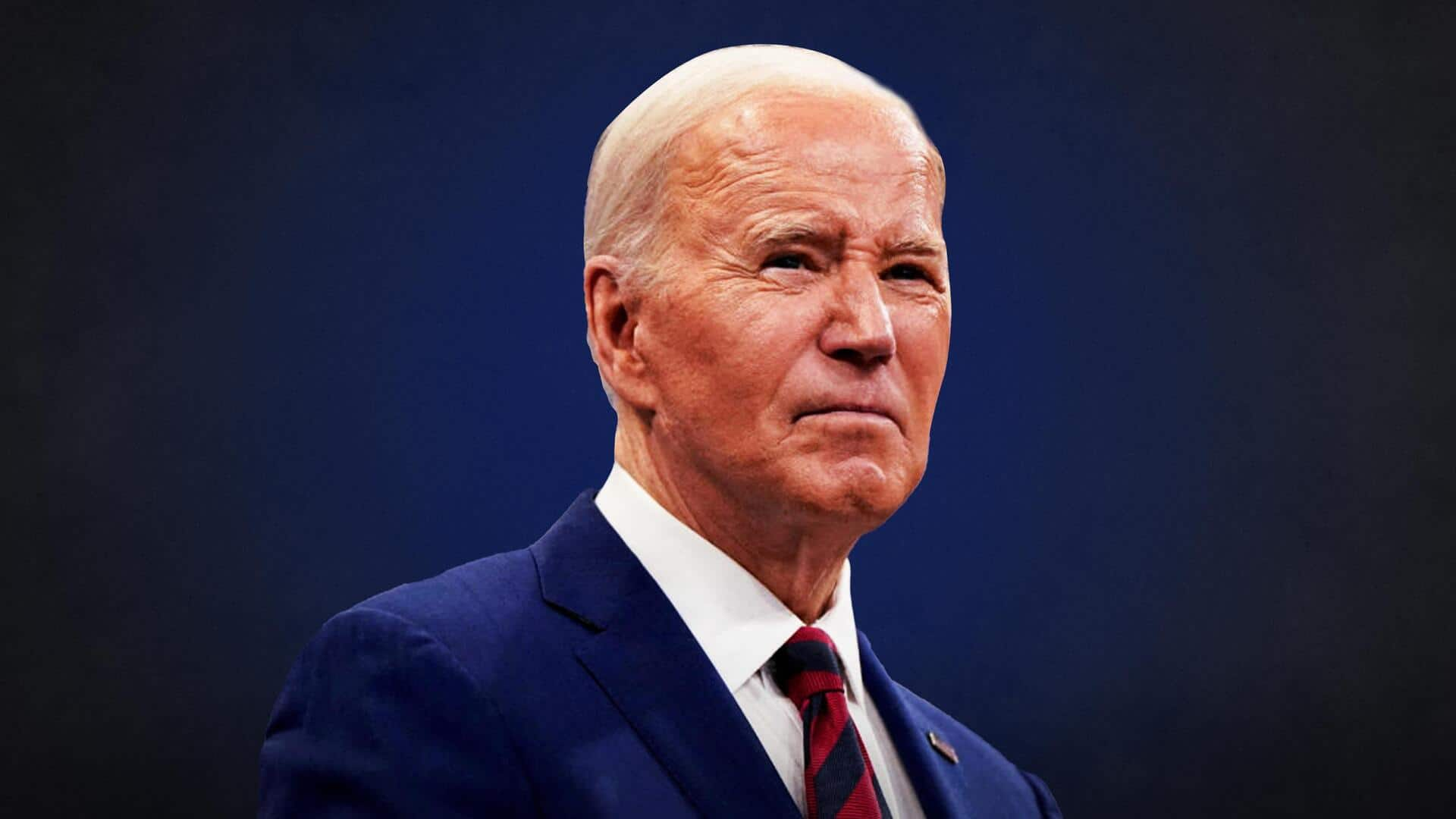
US: What next if Biden decides to leave presidential race?
What's the story
United States President Joe Biden is anticipated to make a crucial announcement about his re-election bid, sparking rumors that he may withdraw from the presidential race.
Over two dozen Democrat lawmakers, including former President Barack Obama, have reportedly urged the 81-year-old president to reconsider his candidacy due to health issues and dwindling popularity against Republican opponent Donald Trump.
The "Biden for President" campaign is scheduled to convene an all-staff meeting on Friday to discuss their future course of action.
Health scare
Biden's COVID-19 diagnosis fuels exit speculation
Biden recently tested positive for COVID-19 and has since been in isolation at his Delaware residence.
This development has further fueled speculation about his potential exit from the presidential race, with party leaders encouraging him to consider stepping down.
The decision is expected to significantly impact the Democratic party's strategy for the upcoming election.
Succession race
Potential successors
In the event of Biden's withdrawal, several Democrat lawmakers are rallying behind US Vice President Kamala Harris.
However, Harris would not automatically become the party's top choice for the presidential race.
The Democratic National Convention, scheduled for August 19 in Chicago, will see delegates vote to select their official presidential nominee.
Prior to this convention, Democrats have an opportunity to agree on a preferred nominee but this selection is not official until the delegates vote.
Potential nominees
Top contenders for Democratic presidential nomination
Currently, Vice President Harris and California Governor Gavin Newsom are considered top potential replacements for Biden.
Other names previously suggested include Kentucky Governor Andy Beshear, Michigan Governor Gretchen Whitmer, and Illinois Governor JB Pritzker.
During the convention, candidates must secure signatures from 600 delegates to be nominated.
The convention is expected to host nearly 4,700 delegates, including 739 automatic or "superdelegates."
Health concerns
'If had medical condition...': What Biden said in recent interview
In a recent interview, Biden acknowledged that he might consider stepping down if advised by medical professionals due to a serious health condition.
"If I had some medical condition that emerged, if somebody, if doctors came to me and said, you got this problem and that problem," Biden had said.
To recall, after President Biden's lackluster debate performance last month, Democrats had questioned the possibility of his departure from the 2024 presidential race.
Potential scenarios
If Biden doesn't drop out before DNC then what
Notably, if Biden decides to drop out the announcement should be made ahead of the Democratic National Convention so that a new candidate can be nominated by the party.
If that is not the case then, according to rules, if a candidate leaves the race after the convention, the Democratic National Committee has authority to fill a vacancy on the national ticket after consultation with Democratic governors and congressional leadership.
Past incidents
Historical precedents and constitutional provisions
In modern times, there has been one instance where a candidate left the race after the convention.
In 1972, Senator Thomas Eagleton had to step aside after it was discovered that he was treated for mental illness, leading the DNC to affirm Sargent Shriver as Democratic nominee.
Separately, if a president-elect was incapacitated after the election, timing is crucial.
Under the Constitution, it is electors meeting in state capitols who technically cast votes for the presidency.
Legal aspects
The 25th Amendment and party rules in focus
An in-depth Congressional Research Service memo notes that if an incumbent president becomes incapacitated after winning the party's nomination, the 25th Amendment would elevate the vice president to the presidency.
However, party rules would determine who rises to become the party's nominee.
Neither party requires that the presidential candidate's running mate be elevated to the top of the ticket, though that would be most likely.
The law itself is murky regarding this scenario.
Constitutional clauses
The 20th Amendment and its implications
The 20th Amendment provides further clarity on the succession process.
If a president-elect dies, his or her running mate becomes president.
However, the Congressional Research Service memo suggests that it would clearly make sense for a vice president-elect to simply assume the role of president-elect in case of incapacitation after election, but the law itself is not explicit on this matter.
This leaves room for interpretation and potential legal challenges in such an eventuality.